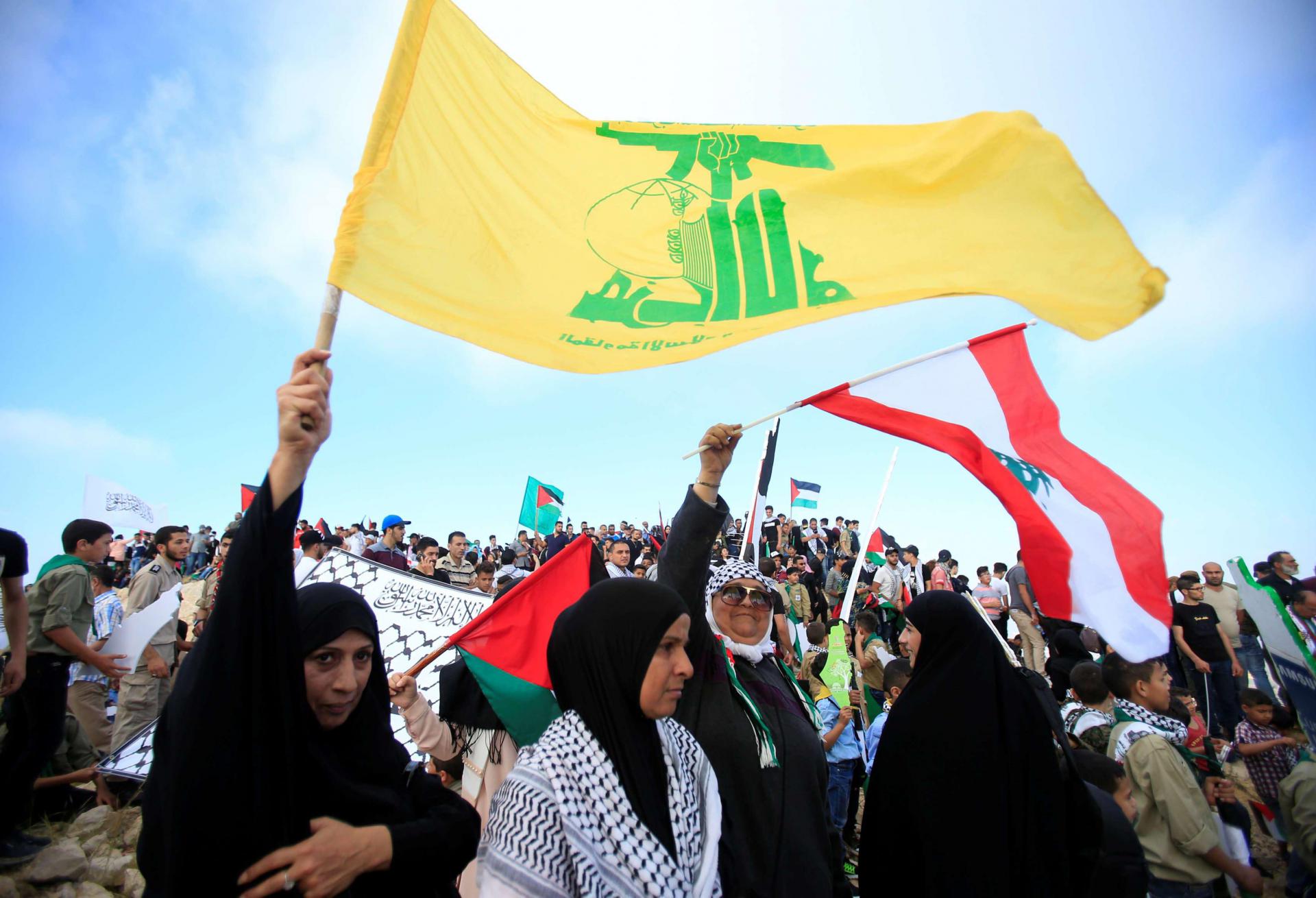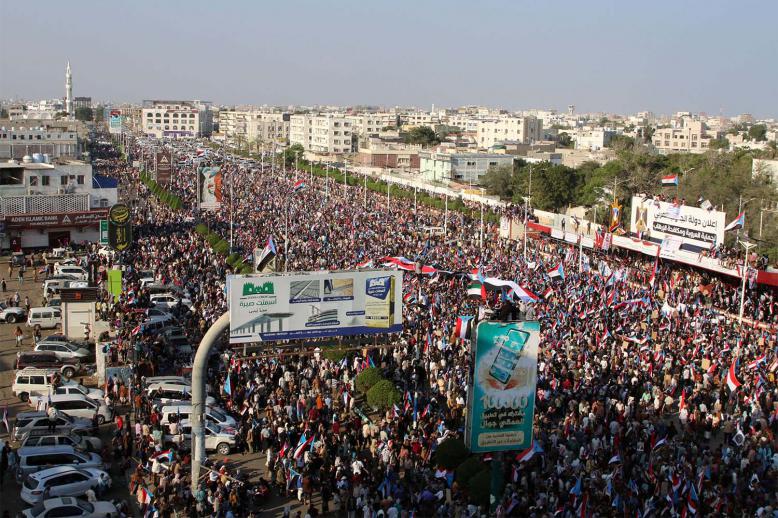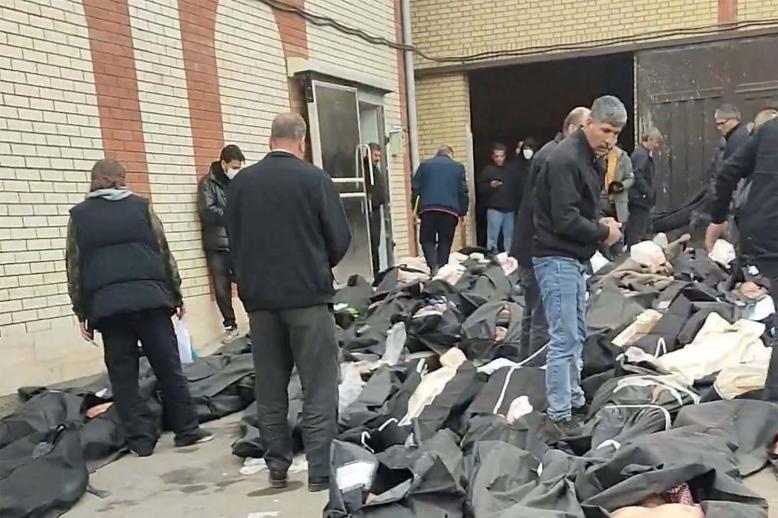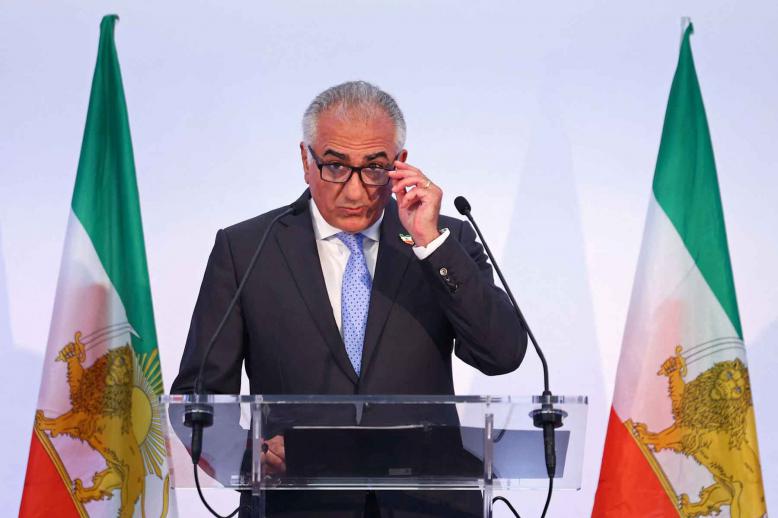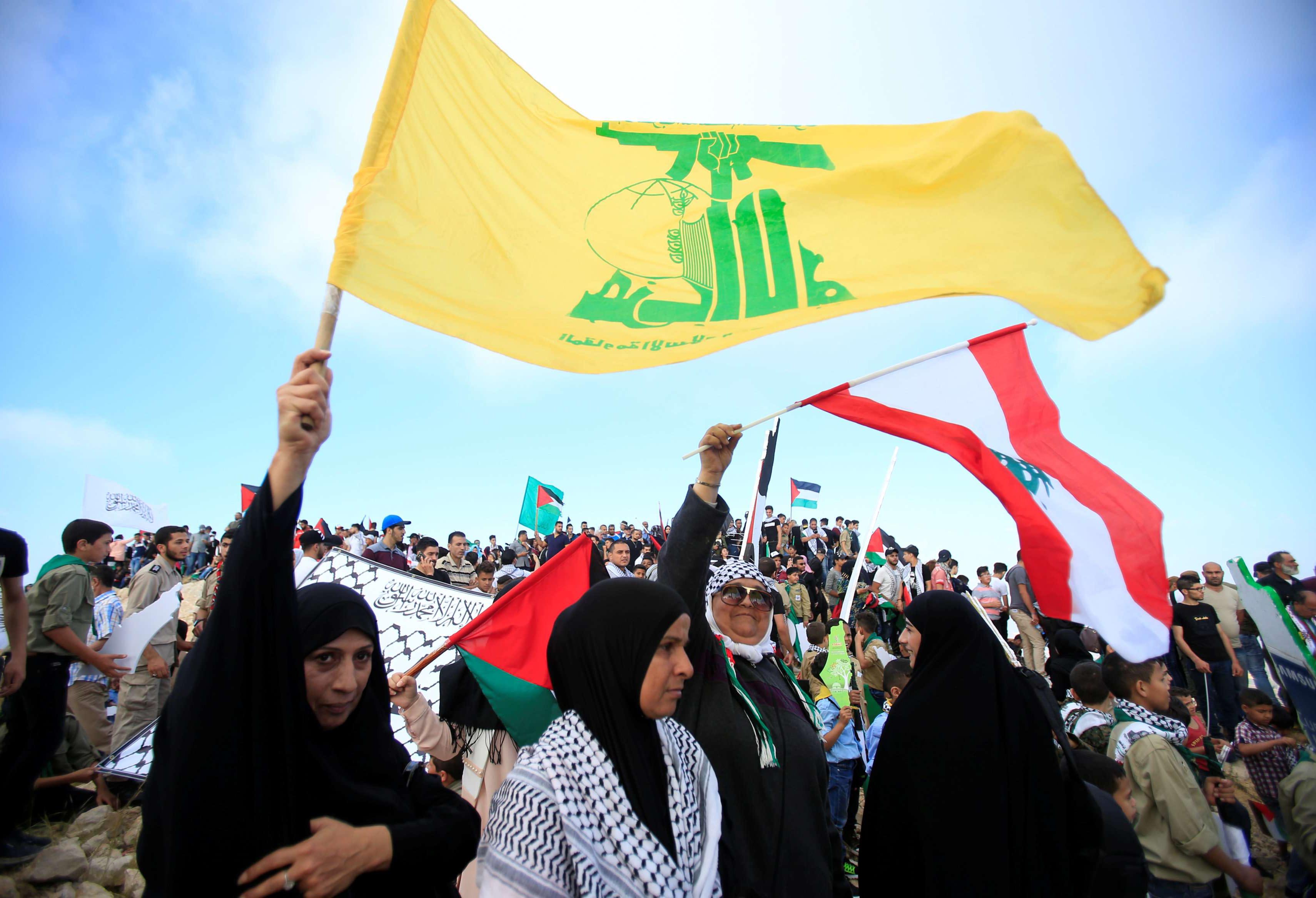US and Gulf countries announce fresh Hezbollah sanctions
The United States and its Gulf partners have introduced new sanctions on Hezbollah’s leadership just a week after the US withdrawal from the Iran nuclear deal.
Hassan Nasrallah and Naim Qassem, the two top officials of the militant Shia group, were targeted in the third wave of sanctions to be imposed by the US Treasury since the Trump administration pulled out of the agreement.
The new sanctions were imposed jointly with the Gulf-based Terrorist Financing and Targeting Centre (TFTC), which includes Gulf Cooperation Council-member countries.
Among those sanctioned are several key members of Hezbollah’s leadership and the ruling Shura Council, including Mohammed Yazbek, head of the group’s religious council, Hussein al-Khalil, Nasrallah’s political aide, Ibrahim Amin al-Sayyed, head of the political bureau and Hashem Safieddine, a senior Hezbollah leader and a key member of the organisation’s executive council.
The GCC sanctions included a number of additional figures previously blacklisted by the United States.
“The TFTC again demonstrated its great value to international security by disrupting Iran and Hezbollah’s destabilising influence in the region,” US Treasury Secretary Steven Mnuchin said in a statement. “By targeting Hezbollah’s Shura Council, our nations collectively rejected the false distinction between a so-called ‘Political Wing’ and Hezbollah’s global terrorist plotting.”
The TFTC was formed in spring of 2017 as part of what the US Treasury described as a “collaborative approach to confronting new and evolving threats arising from terrorist financing.”
The TFTC launched its first wave of sanctions in October the same year, targeting leaders, financiers and facilitators of the Islamic State in Iraq and Syria in Yemen (ISIS-Y) and al-Qaeda in the Arabian Peninsula.
These latest wave of sanctions stand as a stark regional rebuke to Hezbollah and its international operations, not least its continued involvement in the Syrian civil war.
Nasrallah, Hezbollah’s secretary-general, and his deputy, Qassem, who have been involved in the group since the early 1990s, are both accused of directly overseeing its terrorist activities. Yazbak is likewise accused of supervising Hezbollah training camps and the smuggling of weapons to the group. He is also alleged to have hosted experts from Iran’s Islamic Revolutionary Guard Corps (IRGC) to train Hezbollah fighters on weapons systems. Similarly, al-Khalil is alleged to have been one of several senior Hezbollah commanders who held responsibility for the group’s operations in Europe. Al-Sayyid and Safieddine, both members of Hezbollah’s political council, have served as spokesmen for the group.
“What’s significant about these sanctions in particular is that they target purely political figures. Normally, these kind of measures go after financiers or businessmen, but not this time,” Hanin Ghaddar, a visiting fellow at The Washington Institute told The Arab Weekly. “In real terms, they’re unlikely to make a huge difference. These people don’t have bank accounts, they don’t have credit cards, they don’t travel abroad. However, it sends a powerful message to the business community around Hezbollah; if you support them you will be targeted.
“Similar sanctions were tried two years ago and sent the businessmen around Hezbollah running, but they were never really followed up on, which takes us to where we are today.”
Despite the range of sanctions, Nasrallah is unlikely to be publicly troubled by the new measures imposed against him or the breadth of the bodies doing so. During a television address last year marking the anniversary of Hezbollah’s 2006 war with Israel, he said: “The American administration, with all available and possible means, will not be able to damage the strength of the resistance.”
On May 15, the US Treasury also announced sanctions on Iran’s central bank governor, as well as an Iraq-based bank for allegedly funnelling millions of dollars to the group.
Further sanctions were announced on May 17, with Abdallah Safi al-Din, the group’s representative in Iran, as well as major financier Mohammad Ibrahim Bazzi, plus five of his companies targeted by the US Treasury.
“The savage and depraved acts of one of Hezbollah’s most prominent financiers cannot be tolerated,” Mnuchin said in an additional statement.
“This administration will expose and disrupt Hezbollah and Iranian terror networks at every turn, including those with ties to the Central Bank of Iran,” he said.
The new sanctions come just one week after Hezbollah and its political partners emerged from Lebanon’s elections as one of the preeminent forces within the Lebanese parliament, marking a significant advance for the group and its mission within the region.
This article was originally published in The Arab Weekly.


